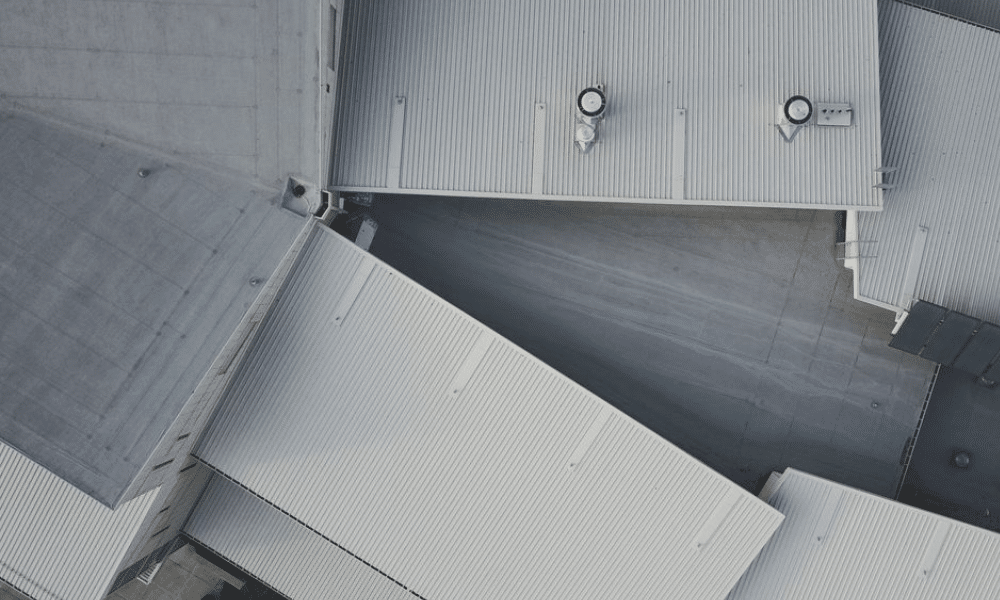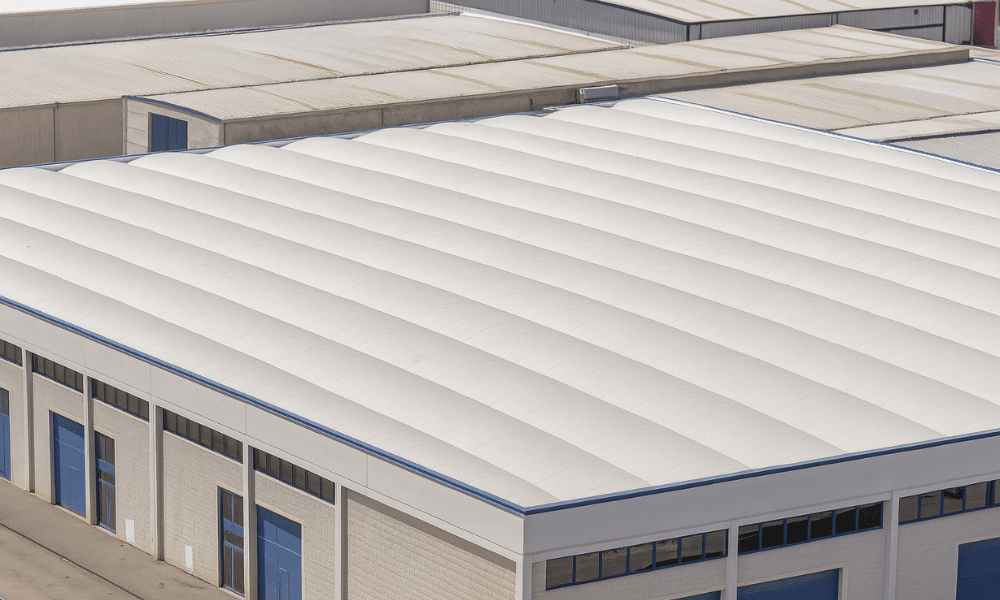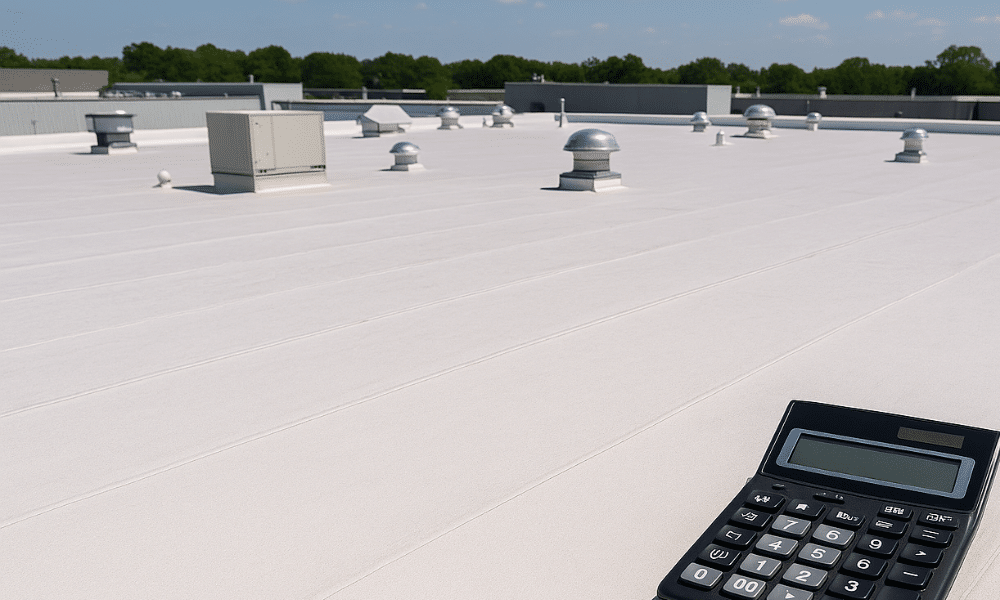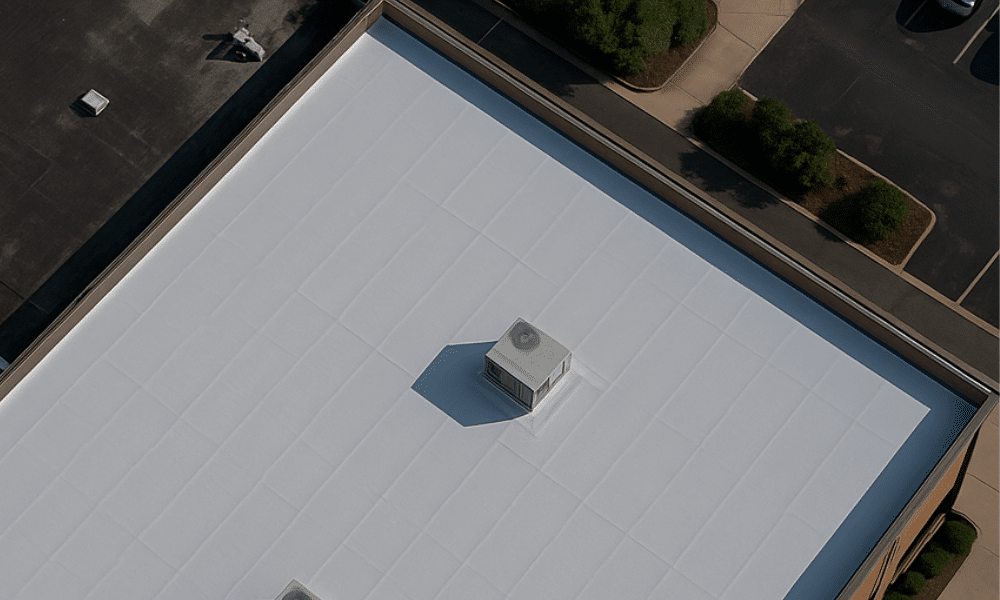
Summary Highlights:
- R-value determines your roof's thermal resistance and overall energy performance.
- Climate zones, building usage, and insulation type all affect the optimal R-value.
- Misjudging R-value can lead to higher energy bills and premature roof degradation.
- Choosing the right insulation during roof replacement can maximize ROI long-term.
As a building owner or facility manager, you've likely heard about R-value but what does it actually mean for your commercial roofing system? At WaterTight Roofing, we help our clients make informed decisions about roof insulation, energy savings, and long-term performance. Whether you're planning a full roof replacement or looking to improve your building's energy efficiency, understanding R-value is essential to achieving your goals.
What Exactly Is R-Value and Why Should You Care?
The R-value of roofing insulation refers to its resistance to heat flow—the higher the number, the better it insulates your building. In commercial roofing, this number isn't just a technical specification. It's a crucial factor that directly impacts interior comfort, HVAC performance, and energy bills.
For example, buildings in colder climates often require higher R-values to retain warmth, while those in hotter areas need insulation that minimizes heat gain. A roof with insufficient R-value forces your HVAC systems to work harder, which leads to higher utility costs and faster wear and tear. On the flip side, insulation with the correct R-value acts like a thermal barrier, stabilizing your indoor environment and lowering overhead expenses.
How Do Building Codes Influence Required R-Values?
Commercial properties are subject to strict building codes, including insulation standards based on regional climate zones. Most states follow guidelines from the International Energy Conservation Code (IECC), which outlines minimum R-value requirements for low-slope roofs on commercial structures.
Failing to meet code can lead to rejected permits, fines, and insurance issues—not to mention subpar thermal performance. But compliance isn't just about meeting legal benchmarks; it's about optimizing your roofing investment. Whether you're planning a built-up assembly or a commercial metal roofing system, your insulation strategy must be tailored to the roofing type for maximum effectiveness.
This is where working with professional roof consultants can make all the difference. At WaterTight Roofing, we help you align your roofing system with local codes and building performance goals—ensuring every layer serves a purpose.
What Types of Insulation Offer the Best R-Value?
Different materials deliver different R-values per inch of thickness. Here's how some common options compare:
- Polyisocyanurate (Polyiso): Offers one of the highest R-values (~R-6.0 to R-6.5 per inch) and is widely used in commercial flat roofing.
- Expanded Polystyrene (EPS): Cost-effective and stable, with an R-value around R-3.6 to R-4.0.
- Extruded Polystyrene (XPS): Durable with good moisture resistance and R-value between R-4.5 and R-5.0.
- Mineral Wool: Fire-resistant and vapor-permeable, with moderate R-values (~R-4.0 per inch).
If sustainability is a concern, some newer materials incorporate recycled content or are designed to reduce off-gassing. It's important to factor in real-world performance—not just lab values—especially when it comes to long-term moisture exposure.
How Does Roof Design Impact Your Insulation Strategy?
Your insulation approach can differ based on whether your commercial roof is being replaced, retrofitted, or newly constructed. Low-slope roofs, often found on warehouses, schools, and manufacturing facilities, require different installation methods than steep-slope systems.
In flat roofing applications, insulation is typically installed above the deck using rigid boards in staggered layers to eliminate thermal bridging. Tapered insulation may also be used to assist with drainage and slope requirements.
One innovative approach includes SPF roofing for commercial roofs, which combines insulation and waterproofing in a single seamless application. SPF (spray polyurethane foam) expands on contact to form a highly insulative barrier with a strong R-value per inch—making it a smart choice for buildings aiming for maximum efficiency with minimal layers.
How Can You Tell If Your Roof's R-Value Is Enough?
The easiest way to know is through a professional roof inspection or thermal imaging scan. If your building struggles to maintain indoor temperatures or shows signs of ice damming, condensation, or hot/cold zones, your current insulation may be underperforming.
It's not uncommon for older commercial roofs to have outdated insulation that falls far below today's standards. In those cases, upgrading the R-value during your next roof replacement project is not just an upgrade. It's a financial strategy that pays for itself through reduced operational costs.
WaterTight Roofing helps clients assess their current insulation levels and identify performance gaps. We can simulate energy savings based on various insulation thicknesses and materials, giving you clarity as you budget for commercial roof replacement and long-term energy management.
Take Control of Your Roof's Insulation Performance
At WaterTight Roofing, we're here to help you make the smartest decisions for your commercial property—balancing compliance, energy efficiency, and budget. Let's talk about how improved R-value can extend your roof's life, reduce your utility bills, and strengthen your building's performance for years to come.
Contact us today at 888-809-9976 to get started with a roof insulation assessment tailored to your needs.
Why Trust WaterTight Roofing
WaterTight Roofing is Texas's go-to expert for commercial and industrial roofing solutions, proudly serving Fort Worth, Austin, and surrounding communities since 2011. With over 20 million square feet of commercial roofing installed, we specialize in flat and low-slope systems, storm damage restoration, insurance loss evaluations, roof replacements, and energy-efficient roof coatings. As trusted partners to property managers, business owners, agricultural operators, and facility directors, we deliver durable results with unmatched integrity.
At WaterTight Roofing, we're not here for one-time fixes—we're here to protect your property and bottom line for the long haul. From inspection to installation, our team is committed to quality, clarity, and client-first service every step of the way.
Blog subscribers get new resources and how-to guides delivered via email.
Your Business Relies On Staying Dry





